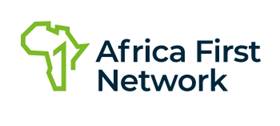INSIGHTS: Global Gateway as a Gamechanger?
The EU’s new infrastructure initiative has many similarities to the Africa First concept. However, for it to be a success, more speed, clarity and coherence are needed.
By Martin Schoeller & Daniel Schönwitz
In December, the EU Commission presented its long-awaited Global Gateway Strategy. And lo and behold: it wants to make a splash, not a spill. Europe intends to mobilize up to 300 billion euros within seven years for infrastructure investments in emerging and developing countries (with Africa as a main focus).
In this way, the EU wants not only to trigger growth and prosperity, but also to bind emerging countries more closely to itself. The Global Gateway is thus an important instrument in the global competition among different systems and the European reaction to the Chinese Belt and Road Initiative.
The initiative is similar to the agenda we set out in “Africa First! Roadmap for a joint future” under the name Spice Route 2.0: An infrastructure programme that brings Europe, Africa and Asia closer together (as the historic Spice Route did). And from which all participants benefit, because
- Infrastructure is the basis for entrepreneurial engagement, investment and inclusive growth,
- Growth in Africa reduces refugee numbers and opens up new export opportunities for the European economy,
- investments in African energy infrastructure are a decisive lever for global climate protection,
- developing countries in particular have the opportunity to reduce their dependence on China.
Why we need to speed up
Another parallel to “Africa First”: the EU is primarily focusing on mobilising private capital instead of burdening taxpayers. This is the right approach – for the low interest rates offer a huge opportunity to channel capital from the global North to where it can make a particularly big difference.
The key to this is state guarantees within the framework of blended finance concepts, which the EU wants to initiate through the European Investment Bank (EIB). The Global Gateway is thus more than a glimmer of hope – however, it is now a matter of speeding things up: Currently, there is talk of just three to seven pilot projects by the end of 2022.
That would be too little. For China is not sleeping and has already launched a new charm offensive in Africa. Beijing wants to supply 600 million vaccine doses free of charge and import more African goods. In addition, China is exporting tech infrastructure via the so-called digital Silk Road, which offers autocrats and dictators new surveillance options to stabilise their regimes. While Europe is still planning, Beijing is creating facts.
Where investments make sense
In addition to more speed, more clarity is needed. The EU Commission’s announcements still contain a number of gaps that need to be filled. For example, Brussels officials write that the Global Gateway is aimed at countries with high constitutional, social and human rights and high labour standards. That sounds good, but what does that mean in concrete terms?
Central criteria should be – in the sense of the Africa-First concept – fair minimum wages and social networks. The EU should therefore promote investments where a social market economy is being created. The social component is crucial to ensure that growth reaches all parts of the population (and thus triggers a broad boost to prosperity instead of just a flash in the pan for the benefit of a few).
It is also important that the projects are attractive for private investors. “Blended finance“, i.e. public-private partnerships for investments, have a bad reputation in many places and are even regarded by some financiers as yield graves. This prejudice needs to be revised – the EU should therefore involve the private sector as a partner at an early stage and not just regard it as a vicarious agent. In addition, there is a need for unbureaucratic opportunities to invest in projects.
How the EU can (re)gain credibility
Moreover, no one should assume that those responsible in emerging and developing countries will be full of gratitude and banging down our doors. The EU has gambled away credibility in Africa by pushing through trade agreements that leave African countries little room for manoeuvre to protect key industries and make it difficult to build value chains.
This makes it harder for us to present ourselves as a partner in infrastructure development who has the common good in mind. In parallel to the Global Gateway, the EU should therefore ensure coherence between trade and development policy and offer new trade agreements. This would create trust and credibility – and significantly increase the chances of the Global Gateway’s success.
The initiative could then even become a gamechanger – in the fight against poverty, in the fight for the climate and in the fight against totalitarism. But that will still be a hard piece of work.
Follow Martin A. Schoeller and Daniel Schönwitz on LinkedIn.
